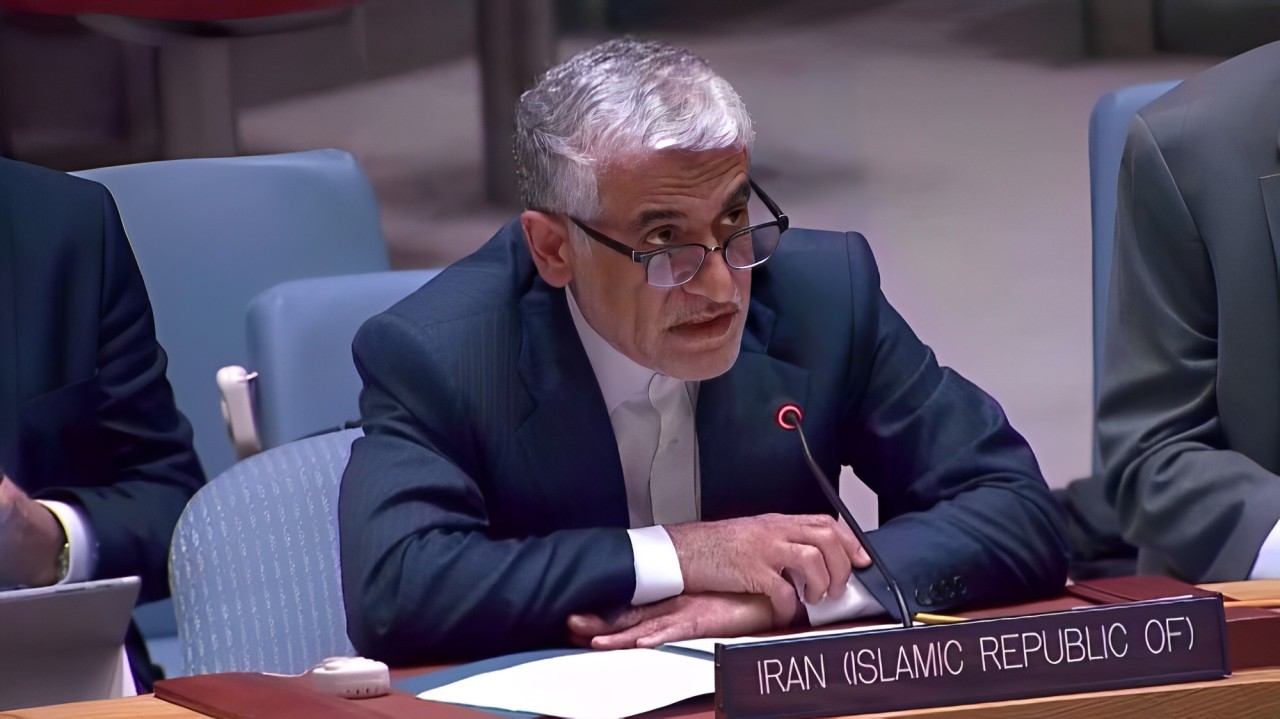
Published at: December 9, 2024 8:08 AM
Updated at: December 10, 2024 8:09 AM
Iran Rejects IAEA Allegations, Defends Peaceful Nuclear Program
Iran’s Foreign Ministry has firmly dismissed recent claims by the International Atomic Energy Agency (IAEA), reaffirming its commitment to a peaceful and transparent nuclear program. Despite mounting pressure from the United States and European nations, Iran asserts that its nuclear activities remain fully compliant with international regulations and under the IAEA’s supervision.
Foreign Ministry spokesperson Esmail Baqaei addressed these issues during a press briefing on Saturday, responding to concerns raised by IAEA Director General Rafael Grossi. Grossi had expressed unease about Iran's uranium enrichment activities, alleging that Iran was enriching uranium to 60% purity—closer to the weapons-grade level of 90%.
Baqaei refuted these allegations, emphasizing that Iran’s actions are consistent with its obligations under the Treaty on the Non-Proliferation of Nuclear Weapons (NPT) and the Comprehensive Safeguards Agreement. These treaties ensure that Iran’s nuclear activities are for peaceful purposes and remain transparent.
Baqaei also criticized a recent resolution adopted by the IAEA’s Board of Governors. The resolution, led by the U.S., Britain, France, and Germany, accused Iran of non-cooperation and demanded a detailed report on its nuclear activities by spring 2025. Iran views this resolution as politically motivated and lacking legal merit.
In response to the resolution, Tehran has advanced its nuclear program, including injecting uranium gas into more advanced centrifuges. Baqaei pointed out that during Grossi’s last visit to Tehran, Iranian officials proposed measures to improve technical cooperation with the IAEA. However, he claimed these efforts were undermined by Western countries, which allegedly influenced the IAEA to adopt a confrontational stance.
Despite the accusations, Baqaei underscored that Iran’s nuclear activities remain within the framework of international agreements and under constant IAEA oversight. He stated that Tehran has provided full disclosure to the agency regarding its activities, including uranium enrichment up to 60% purity, ensuring complete transparency.
Baqaei reiterated that Iran would not yield to external pressure or coercion. While maintaining its openness to constructive dialogue, Iran is prepared to defend its nuclear rights and national interests when challenged.
Iran’s nuclear program has been at the center of international debate since the 2015 Joint Comprehensive Plan of Action (JCPOA) was signed with the P5+1 nations. The agreement recognized Iran’s right to develop nuclear energy for peaceful purposes while imposing certain restrictions in exchange for sanctions relief.
However, the U.S. withdrawal from the deal in 2018 and the reimposition of sanctions disrupted the agreement. Since then, Iran has taken steps to reduce its compliance with JCPOA restrictions, citing its right to respond to what it sees as violations by other parties.
Iran continues to call for a fair and balanced approach from the international community, emphasizing that its nuclear ambitions remain peaceful. Baqaei concluded by stating that Iran seeks positive engagement but will not compromise its sovereignty or legal rights under international frameworks.
Share to